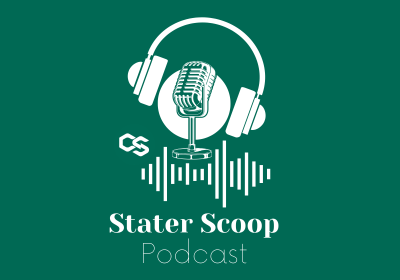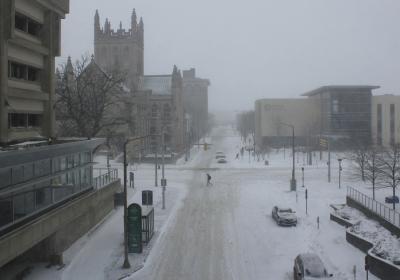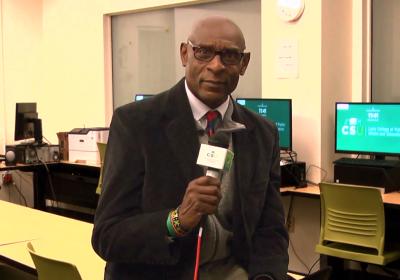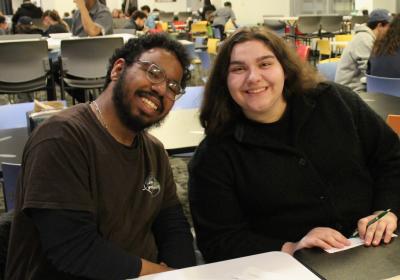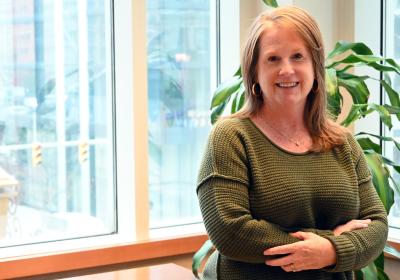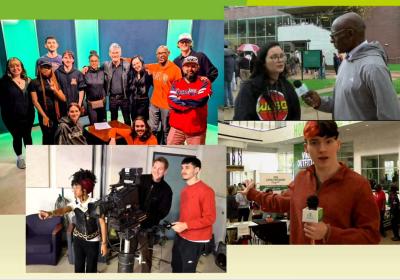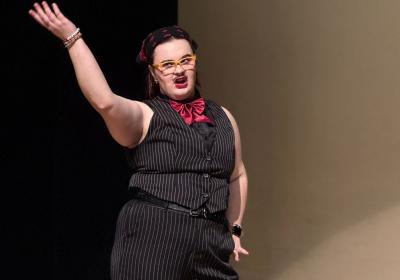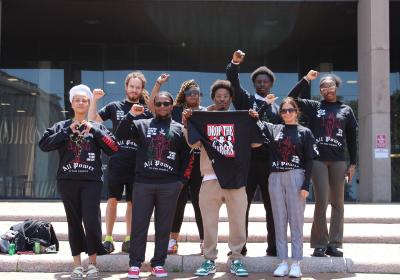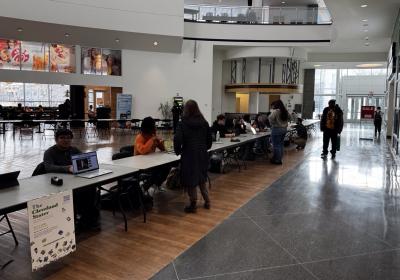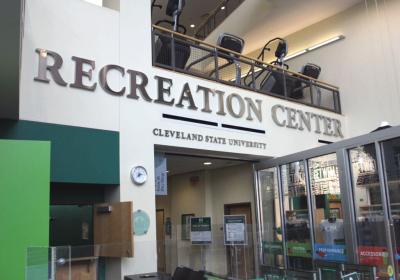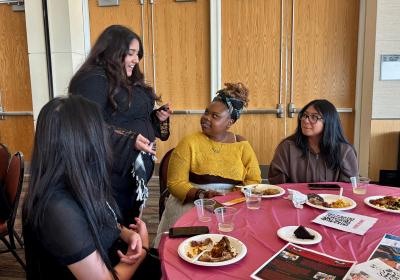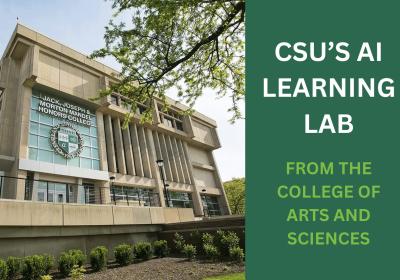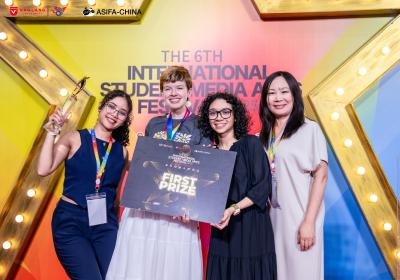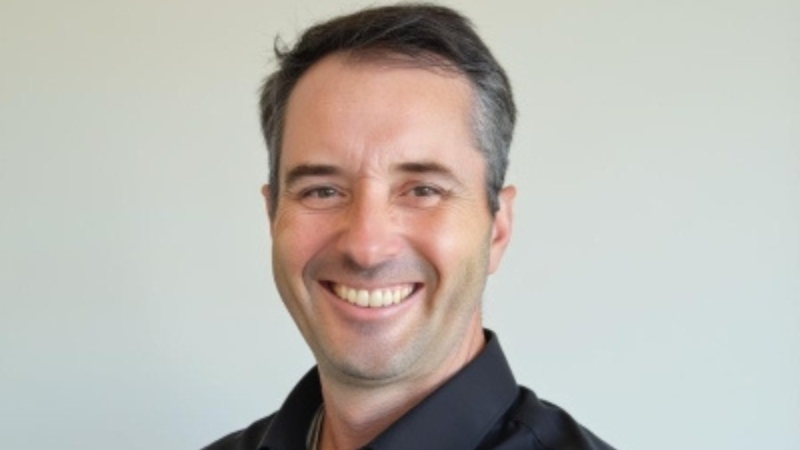
Meet Dr. Peter Koritansky, head of CSU's Center for Civics, Society and Culture
As a spot was carved out June 1, 2025, at Cleveland State University for the Center for Civics, Society and Culture, a website description with copy-pasted verbiage from an Ohio legislative section caught the attention of students and faculty.
What seemed to be an office mandated by the state legislature had all the signs of being the direct result of Ohio Senate Bill 1, which in February 2025, shut down CSU's diversity, equity and inclusion initiatives. That assumption is unwarranted, according to the center's new head, Dr. Peter Koritansky, whom The Cleveland Stater recently sat down with for this exclusive interview.
“It is true, obviously, that the people who voted on and passed SB1 are the same people that voted on and passed the law that creates the five civic centers, including the Civic Center at Cleveland State,” Koritansky told The Stater Oct. 2. “But I think it's probably a mistake to really lump those together.”
“They kind of unfolded at the same time,” Koritansky said. “But no, the creation of the centers predates SB1 significantly. And there really is very little connection between the two laws.”
Although CSU’s center opened in June 2025, civics centers have started to appear at universities scattered across the country, beginning in 2017, when Arizona State University opened its "School of Civic and Economic Thought and Leadership."
In Ohio, the Republican-dominated general assembly in 2023 passed House Bill 33 requiring five public universities to create Civic Centers. The five are The Ohio State University, the University of Toledo, Wright State University in Dayton, Miami University in Ohio and CSU. The bill does not address how civics is to be taught at Ohio's nine other public universities.
According to its website, the CSU center exists “to conduct teaching and research in the historical ideas, traditions, and texts that have shaped the American constitutional order and society.” The passage is taken directly from the Ohio Revised Code (ORC), Section 3344.07.
While Section 3344.07 is not within SB1, it satisfies the requirement for an American Civil Literacy course which is outlined in SB1’s ORC Section 3345.382.
“I think the only real connection, at least practically speaking, is the fact that SB1 requires a civics literacy requirement of every student that graduates from one of the 14 public universities in Ohio,” Koritansky said. “And obviously at Cleveland State, that requirement is going to be something that the center is ideally suited to provide for the student body. And we will be doing that.”
Engaging with America's constitutional democracy
Although CSU's center has existed on paper since 2023, Dr. Koritansky described it as “brand new,” adding that center staff have hit the ground running on establishing an educational structure that aligns with the center’s state-mandated mission.
“It's to engage in both teaching and research in the ideas, texts, and traditions that have shaped the American constitutional democracy,” Koritansky said. “So when a lot of people talk in academia about, there are things like centers for civic engagement and these sorts of things. Usually what that has meant traditionally is local civic engagement.”
“So engagement with your local community,” Koritansky added, “And although that's not antithetical to what this center is about, our mission is much broader than that. It's to help students at CSU and also in other ways, other stakeholders from across the region to engage with our constitutional democracy as a whole.”
With this in mind, Koritansky has been working with CSU's General Education Committee to create and pass three courses expected to be implemented as part of Cleveland State's Gen Ed program in fall 2026.
The first course, which Koritansky said will be deployed on a small scale in spring 2026 is the Civics Course, which satisfies the SB1 requirement.
“That will be an inherently multidisciplinary course that will really help students understand the principles of our constitutional democracy from a historical perspective, from a philosophical perspective, even to some degree from a legal perspective, and also even to some degree from a kind of literary and artistic perspective as well,” Koritansky said.
The broad range of perspectives within the course reflects Dr. Koritansky's belief, that as a whole, civics is not the eminent domain of any one academic discipline.
“What I'm hoping to do is ultimately, when it comes time to hire the faculty, to be really looking for the best people who believe in the mission of the texts, traditions and ideas that shaped American democracy,” Koritansky said. “(Faculty) who might come from a department of political science, they might come from law, they might come from a philosophy program, they might come from even the study of classics and classical literature.”
Anchoring a modern America in a long history of civic culture
In addition to the civics course, Koritansky is hoping to implement a course focused on the idea of justice. Koritansky noted that the course would center around seminars, discussions and philosophical readings, referencing “Antigone,” a play written by the ancient Greek tragedian Sophocles as one of the first texts on the syllabi.
The third course Koritansky is designing is called Great Debates of American Society, a course that he said aligns well with the center’s mission, which he notes is “not just to be a center for the study of American civics, but also to be a real centerpiece of the basic virtues of civil discourse that are so important to a democratic society.”
“I can't read their (the legislators') minds, but I can only surmise that one of the reasons why this center was brought into existence and other centers like it is not just that Americans are woefully ignorant when it comes to American civics – most of us couldn't even pass the citizenship test, to be brutally honest with you – but also because we've just kind of forgotten how to talk to each other in the United States,” Koritansky said. “These are virtues that are so core and central to what a democracy is.”
“Democracy does not flourish just when you have the right institutions in place,” Koritansky continued. “Democracy does not flourish even when you have a brilliantly designed constitution in place – which I believe the American constitution is – but even that brilliantly designed legal document presupposes and rests upon the presumption that the citizens will have certain skills and abilities and virtues, moral virtues, as well as civic virtues to make that democracy run well.”
The Great Debates would focus on seven to eight “very, very” controversial topics in the United States, which would be suggested by faculty. The topics, supplemented by balanced readings on both sides of the issue, would be discussed by students in a respectful and meaningful way, while being led by a professor who “models those virtues of civil discourse quite well.”
“One of those virtues is this understanding of civil discourse,” Koritansky said. “Knowing how to talk to each other, knowing how to have a conversation that doesn't appeal to authority immediately, knowing how to have a conversation where reason is the only recognized authority in the room, knowing how to disagree with someone without becoming disagreeable.”
An Ohio native returns to his roots
A native of Chardon, Ohio, Dr. Koritansky comes to CSU from the University of Prince Edward Island (UPEI) in Prince Edward Island, Canada, where he was professor of history, philosophy and religious studies. He earned his bachelor's in philosophy from the Catholic University of America and his Ph.D. in philosophy from the University of Toronto.
According to the position fulfillment announcement from CSU, Koritansky’s primary areas of scholarship include the history of political philosophy, philosophy of religion and the philosophy of St. Thomas Aquinas.
Given his academic background and focus, does Dr. Koritansky feel religion will influence how he runs a center dedicated to exploring the foundational principles of the Republic, including the separation of Church and State?
“I think it's important to point out that really, the answer is no, I don't believe that there will be a religious bias in the center,” Koritansky said when asked if he feels religious bias has the possibility of undermining the integrity of the center, even unintentionally. “I am well aware that somebody might look at my own scholarly background and think that. It is important to point out that I have been in not just higher education, but public higher education for almost 20 years now – and a public university in Canada at that.”
“I've been in a secular, higher educational environment for the vast majority of my career,” Koritansky said. “And when I interviewed with President Bloomberg and also the provost, I reminded them, not just of that fact, but that I believe very strongly in higher education, and I believe very strongly in public higher education. There will be absolutely no sectarian bias, whatsoever.”
Koritansky’s interview with Dr. Laura Bloomberg and CSU Provost, Nigamanth Sridhar, Ph.D., was an integral final step in the extensive process Cleveland State used to identify Koritansky as the right person to lead the center.
“I was not hired in the same traditional way that many other administrators and even faculty – and I'm both a faculty member and an administrator on campus – would normally be hired,” Koritansky said. “That was a direct result of the legislative assembly, the way they crafted the law (House Bill 33).”
For all five civic centers across the state, the legislative assembly created an academic council, composed of seven preeminent scholars from across the country. The council then searched for, interviewed and decided upon three candidates.
“Those finalists were then called for a second interview,” Koritansky said. “It was a day-long interview, and that was with all Cleveland State people. So I met faculty, I met with students, I met with most of the deans.”
Which students and faculty were involved in the interview process is unclear, as the university did not publicly invite students to participate.
“Then finally, at the end of the day, I met with the provost and the president,” Koritansky said. “I know for a fact that President Bloomberg then consulted with all those people who had seen all of these finalists – however many there were, I don't even know – and then after consulting with them and getting their feedback, she is the one who made the final decision.”
“The final decision was a CSU decision,” Koritansky added, “and I think it was designed that way intentionally.”
Although Koritansky’s position was finalized by the university, the center's creation at the university was not a decision made by CSU, nor will CSU pick up the $2 million price tag, which the state will cover, according to Bloomberg.
Should the state stop funding the center, Bloomberg in April told The Cleveland Stater that the university would not fund the center internally, due to lack of funds in the CSU budget.

